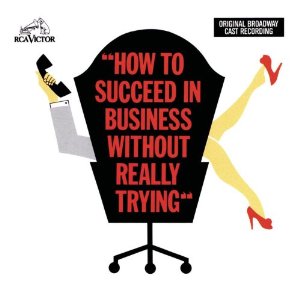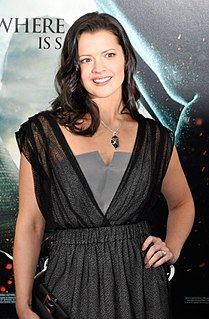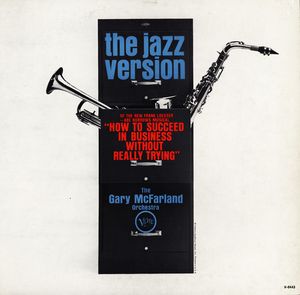
Robert Louis Fosse was an American actor, choreographer, dancer, and film and stage director. He directed and choreographed musical works on stage and screen, including the stage musicals The Pajama Game (1954), Damn Yankees (1955), How to Succeed in Business Without Really Trying (1961), Sweet Charity (1966), Pippin (1972), and Chicago (1975). He directed the films Sweet Charity (1969), Cabaret (1972), Lenny (1975), All That Jazz (1979), and Star 80 (1983).

Frank Henry Loesser was an American songwriter who wrote the music and lyrics for the Broadway musicals Guys and Dolls and How to Succeed in Business Without Really Trying, among others. He won a Tony Award for Guys and Dolls and shared the Pulitzer Prize for Drama for How to Succeed. He also wrote songs for over 60 Hollywood films and Tin Pan Alley, many of which have become standards, and was nominated for five Academy Awards for best song, winning once for Baby, It's Cold Outside.

How to Succeed in Business Without Really Trying is a 1961 musical by Frank Loesser and book by Abe Burrows, Jack Weinstock, and Willie Gilbert, based on Shepherd Mead's 1952 book of the same name. The story concerns young, ambitious J. Pierrepont Finch, who, with the help of the book How to Succeed in Business Without Really Trying, rises from window washer to chairman of the board of the World Wide Wicket Company.

Robert Alan Morse was an American actor, who starred in How to Succeed in Business Without Really Trying, both the 1961 original Broadway production, for which he won a Tony Award, and its 1967 film adaptation; and as Bertram Cooper in the critically acclaimed AMC dramatic series Mad Men (2007–2015). He won his second Tony Award for playing Truman Capote in the 1989 production of the one-man play Tru. He reprised his role of Capote in an airing of the play for American Playhouse in 1992, winning him a Primetime Emmy Award.
Roger Bart is an American actor and singer. He won a Tony Award and a Drama Desk Award for his performance as Snoopy in the 1999 revival of You're a Good Man, Charlie Brown.
The Tony Award for Best Performance by a Leading Actor in a Musical is awarded to the actor who was voted as the best actor in a musical play, whether a new production or a revival. The award has been given since 1948, but the nominees who did not win have only been publicly announced since 1956.

Jonathan Freeman is an American actor and puppeteer. He is known for puppeteering and voicing Tito Swing in Shining Time Station and for voicing Jafar in Disney's Aladdin franchise, as well as the Kingdom Hearts franchise and the 2011 Aladdin musical.
Desmond Steven McAnuff is the American-Canadian former artistic director of Canada's Stratford Festival and director of such Broadway musical theatre productions as Big River, The Who's Tommy and Jersey Boys.
Shepherd Mead, born Edward Mead was an American writer and is best known as the author of How to Succeed in Business Without Really Trying, which was adapted into a hit Broadway show and motion picture.
Jack Weinstock was an American author and playwright who is best known for writing the musical book for How to Succeed in Business Without Really Trying. He also co-authored the play Catch Me If You Can with Willie Gilbert and wrote the book for the musical Hot Spot.

How to Succeed in Business Without Really Trying is a 1967 American romantic musical comedy-drama film based on the 1961 stage musical of the same name, which in turn was based on Shepherd Mead's 1952 book. The film was produced by United Artists and directed by David Swift, with original staging by Bob Fosse.
How to Succeed in Business Without Really Trying may refer to:

Rose Hemingway is an American actress, performer and singer, known for performing in musical theatre productions.
Douglas Besterman is an American orchestrator, musical arranger and music producer. He is the recipient of three Tony Awards out of six total nominations and two Drama Desk Awards out of six total nominations, and was a 2009 Grammy Award nominee.
11 o'clock number is a theatre term for a big, show-stopping song that occurs late in the second act of a two-act musical, in which a major character, often the protagonist, comes to an important realization. Examples include "So Long Dearie" from Hello, Dolly!, "Rose's Turn" from Gypsy, and "Work the Wound" from Passing Strange. It was so named because in the days when musical performances would start at 8:30 p.m., this song would occur around 11:00 p.m.
Ernest Harold Martin was an American Broadway producer who wrote the book for a musical, owned a Broadway theater and produced motion pictures, including Guys and Dolls, How to Succeed in Business Without Really Trying, A Chorus Line and Cabaret. Best known for such hits as Guys and Dolls, How to Succeed in Business Without Really Trying, and Cabaret, Martin left his mark on American and international theatre and screen.

Songs from How to Succeed in Business Without Really Trying is the first EP by Nick Jonas, released on May 8, 2012. The EP contains 5 songs which are available as a digital download on iTunes. The 5 songs on the EP are tunes that Nick performs on stage during the Broadway musical, How to Succeed in Business Without Really Trying.
Bonnie Ann Scott is a retired American actress and singer. She was best known for being the original female lead in the hit Broadway musical How to Succeed in Business Without Really Trying while at the age of only 20. Later she played Judy Bessemer during the first season of the ABC sitcom That Girl.

How to Succeed in Business Without Really Trying: The Dastard's Guide to Fame and Fortune is a humorous 1952 book by Shepherd Mead. It inspired a successful 1961 musical How to Succeed in Business Without Really Trying, which was made into a movie in 1967.

The Jazz Version of "How to Succeed in Business Without Really Trying" is a 1962 album by arranger Gary McFarland of songs from the Frank Loesser musical How to Succeed in Business Without Really Trying. The album was McFarland's debut as a main artist.









